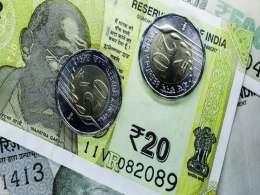The Indian government plans to bring the Reserve Bank of India as a regulator to the microfinance industry to ensure orderly sector growth. Incidentally, the microfinance space has been badly hit last year by numerous complaints regarding its aggressive recovery policies and a huge backlash followed, considerably stunting the sectoral growth.
However, the current measure would be “hugely positive†for the country’s microfinance lenders, SKS Microfinance CFO Dilli Raj said at a televised Press conference in Hyderabad, where the company is based.
Shares of SKS Microfinance, the country’s largest micro-lending company, surged 20 per cent on the National Stock Exchange on the backdrop of the proposed draft guidelines, released by the RBI on its website on July 6.
The draft Micro Financial Sector (Development and Regulation) Bill, 2011, released by the finance ministry, seeks to make it mandatory for all microfinance institutions (MFIs) to be registered with the RBI, making it the sector regulator. The Bill, in its earlier version, had proposed that the National Bank for Agriculture and Rural Development (NABARD) will be the regulator of the sector.
The new nationwide law, if implemented, will require MFI lenders to get certificates of registration from the RBI to start operations.
The bill has also stated that any non-banking finance company already in the sector can apply for such a registration within three months after the act becomes operational, as long as it has provided net-owned funds of at least half a million rupee ($112,574).
The new bill proposes to keep all microfinance companies out of the state governments’ regulations, which will help avoid crackdown on these companies. Last year, there was a severe crackdown on SKS Microfinance in Andhra Pradesh, leading to a drop in loan collections and financial loss. Later, the Reserve Bank of India intervened and subsequently implemented an interest rate cap of 26 per cent for most microfinance loans, which sometimes ranged as high as 60 per cent.
“These draft guidelines will put RBI as the sole regulator and the central bank will have the power to delegate responsibility to NABARD. There can’t be any other entity to regulate the industry,†Sri Karthik, banking and finance analyst at Espirito Santo, Execution Noble, told VCCircle.
The move is significant as it implies that microfinance will be out of the purview of various state legislations in terms of money lending, thereby reinforcing the concept of a sole regulator.
At present, the Andhra Pradesh government has a local law, which requires the state government’s approval to grant loan through microfinance. And during the last quarter, SKS Microfinance received 75,000-80,000 loan applications, of which 1,500 were approved by the Andhra Pradesh government.
“If RBI starts regulating this system, the lending to the sector will start and a lot will depend on what will happen in Andhra on the collection front. Currently, it’s positive for the sector as a whole,†Karthik added.
Employees Dupe Company Of Rs 1.6 Crore
This may come as a breather to the country’s largest listed lender to the poor, which has to face some challenges within. Only recently, SKS has revealed in its annual report that it has identified 156 cases of alleged cash embezzlements by some of its employees who have conned the firm to the tune of Rs 16 million during FY11.
“We have been informed that 52 of these employees were absconding. The outstanding balance (net of recovery) aggregating to Rs 9.63 million ($0.22 million) has been written off,†said SKS Microfinance auditors S R Batliboi & Co in the annual report. The services of all the employees involved have been terminated and the company is in the process of taking legal action.
According to the report, a total of 205 fraudulent cases have been tracked where loans were granted to non-existent borrowers on the basis of fictitious documentation created by the company employees, aggregating to Rs 45 million ($1 million).
The company had to write off the outstanding loan balance (net of recovery) aggregating to Rs 35.4 million ($0.78 million). Besides, 47 cases of impersonation in borrowing loans from the lender to the tune of Rs 138 million ($3.07 million) were reported during the last fiscal.
“The net impact of frauds comes to around 0.070 per cent of the total amount disbursed during the year. The company is working towards reducing this percentage by making process improvements, covering the loss by having an adequate insurance policy and by increasing opportunities for direct contact with our borrowers. During the year, the company has recovered an amount of Rs 9.6 million ($0.21 million) against the fraud amount written off in the previous years,†the auditors concluded.





